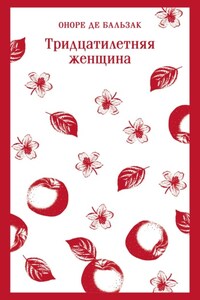The story begins on May 5, 1805, in one of the wildest and most abrupt portions of New Spain, which now forms the State of Coahuila, belonging to the Mexican Confederation.
If the reader will have the kindness to take a glance at a numerous cavalcade, which is debouching from a canyon and scaling at a gallop the scarped side of a rather lofty hill, on the top of which stands an aldea, or village of Indios mansos, he will at the same time form the acquaintance of several of our principal characters, and the country in which the events recorded in this narrative occurred.
This cavalcade was composed of fifteen individuals in all; ten of them were lancers, attired in that yellow uniform which procured them the nickname of tamarindos. These soldiers were execrated by the people, in consequence of their cruelty. They advanced in good order, commanded by a subaltern and an alférez – an old trooper who had grown gray in harness, who had long white moustachios and a disagreeable face. As he galloped on, he looked around him with the careless, wearied air of a man for whom the future reserves no hopes either of ambition, love, or fortune.
About twenty paces from this little band, and just so far ahead that their remarks reached the soldiers' ears in a completely incomprehensible fashion, three persons, two men and a woman, were riding side by side.
The first was a gentleman of about thirty years of age, of commanding stature; his harsh, haughty, and menacing features were rendered even more gloomy by a deep scar of a livid hue which commenced on his right temple and divided his face into two nearly equal parts.
This man, who was dressed in the sumptuous costume of the Mexican campesinos, which he wore with far from common grace, was named Don Aníbal de Saldibar, and was considered the richest hacendero in the province.
His companion, who kept slightly in the rear, doubtless through respect, was a civilized Indian, with a quick eye, aquiline nose, and a wide mouth lined with two rows of dazzling white teeth. His countenance indicated intelligence and bravery. He was short and robust, and the almost disproportioned development of his muscles gave an enormous width to his limbs. This individual must assuredly be endowed with extraordinary strength. His attire, not nearly so rich as that of the hacendero, displayed a certain pretension to elegance, which was an extraordinary thing in an Indian.
This man's name was Pedro Sotavento, and he was majordomo to Don Aníbal.
As we have said, the third person was a female. Although it was easy to see, through the juvenile grace of her movements and her taper waist, that she was still very young, she was so discreetly hidden behind gauze and muslin veils, in order to protect her from the burning heat of the sun which was then at its zenith, that it was impossible to distinguish her features. Long black locks escaped from beneath her broad-brimmed vicuña hat, and fell in profusion on her pink and white shoulders, which were scarcely veiled by a China crape rebozo.
At the moment when we approach these three persons they were conversing together with considerable animation.
"No," Don Aníbal said, with a frown, as he smote the pommel of his saddle, "it is not possible, I cannot believe in so much audacity on the part of these Indian brutes. You must have been deceived, Sotavento."
The majordomo grinned knowingly, and buried his head between his shoulders with a motion which was habitual to him.
"You will see, mi amo," he replied, in a honeyed voice, "my information is positive."
"What!" the hacendero continued with increased fury, "They would really attempt resistance! Why, they must be mad!"
"Not so much as you suppose, mi amo; the aldea is large and contains at least three thousand callis."
"What matter? Suppose there were twice as many, is not one Spaniard as good as ten Indians?"
"In the open, perhaps so."
"What is that you say – perhaps?" Don Aníbal exclaimed, turning sharply round, and giving his majordomo a glance of supreme contempt. "Really, Sotavento, your Indian origin involuntarily abuses your judgment by making you regard things differently from what they really are."
"No, mi amo. The Indian origin with which you reproach me, on the contrary, makes me judge the situation healthily; and, believe me, it is far more serious than you imagine."
These words were uttered in a serious tone, which caused the proud Spaniard to reflect.
Pedro Sotavento had been in his service for a long time. He knew that he was brave and incapable of being intimidated by threats or rodomontade. Moreover, he had always been kind to him, and believed himself sure of his devotion, hence he continued in a milder key —
"That is the reason, then, why you insisted so strongly on my taking an escort when we passed the Fort of Agua Verde?"
"Yes, mi amo," he replied, giving the soldiers a glance of singular expression. "I should have liked it to be more numerous."
"Nonsense, had it not been through consideration for the señora, whom I am anxious not to terrify in her present condition, I would not have accepted a single soldier. We alone are more than sufficient to chastise these scoundrels, were there a thousand of them."














